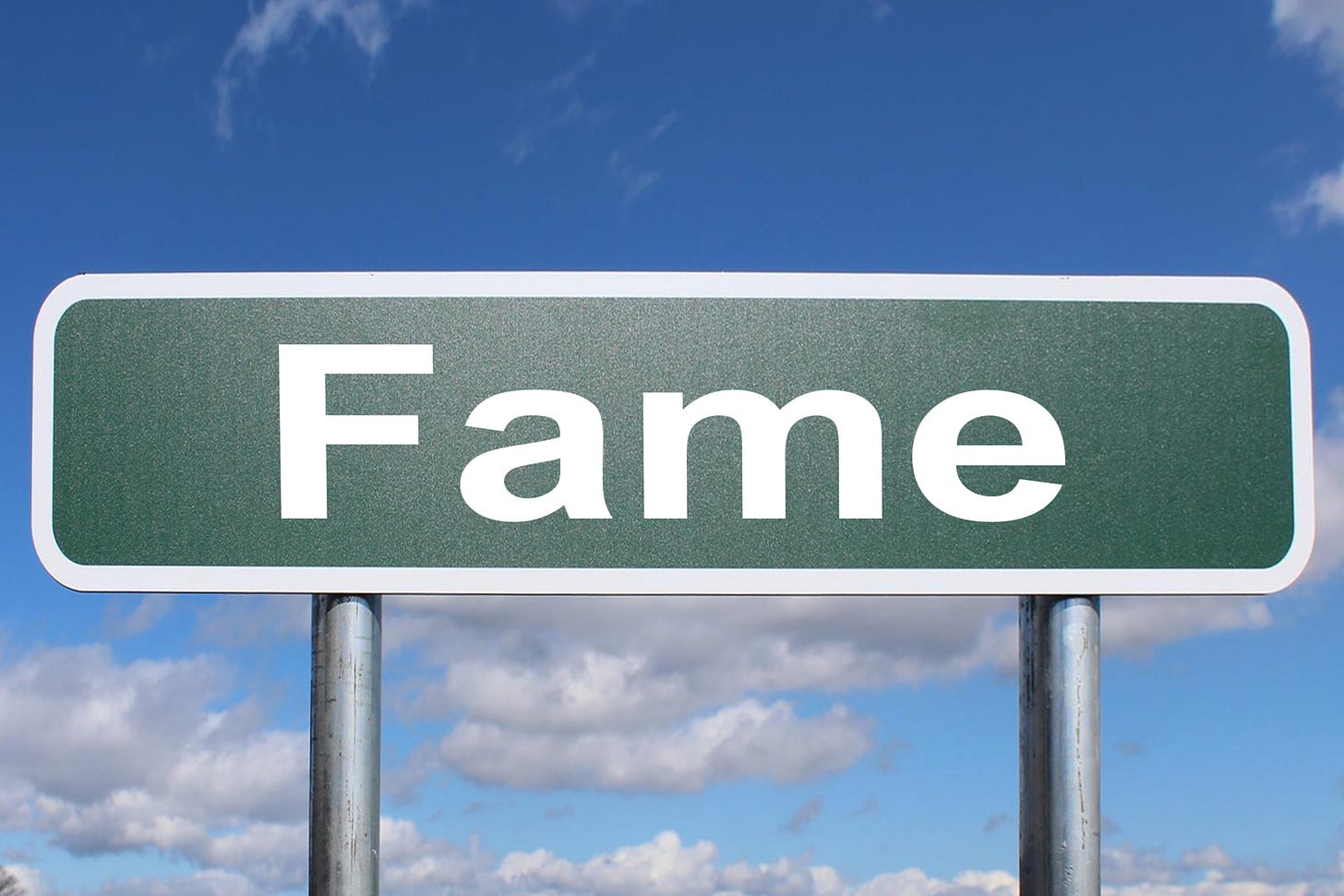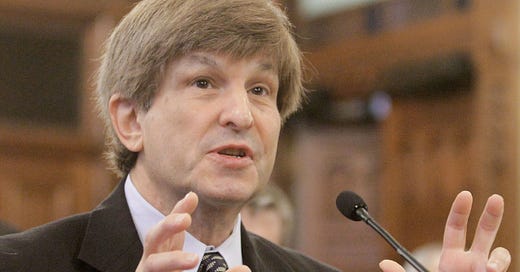
My favorite quote is this one from German philosopher Arthur Schopenhauer: “Wealth is like sea water; the more we drink, the thirstier we become; and the same is true of fame.”
I first heard it about 5 years ago — think I read it somewhere — but, honestly, I hadn’t really thought about how it impacted my life until the last year.
Getting laid off has the effect of forcing you — because you have a lot more free time than you did, very quickly — to really examine your life, and what you were (and are) living for, and why.
In the first few months after I was laid off, I found myself pining for the me I was at CNN. I was so happy then, I thought to myself. I had a good job with a good salary! I was on TV! I was somebody!
Then one day about three months into my unemployment, I had a conversation with someone who has known me for a long time. And had been in regular touch with me during my CNN days.
“You were never happy there,” she told me.
Which stopped me in my tracks. Because she was exactly right.
That led me to a simple question: WHY wasn’t I happy at CNN? After all, I had spent the past few months memorializing that job. And, to anyone on the outside, it was a pretty amazing job!
What I realized was that it wasn’t CNN’s fault. They were good to me (until they weren’t — HA!). They largely made good on the promises they made to me about writing and talking about politics.
It was me. (It’s me. I’m the problem, it’s me.) When I first got to CNN, I felt like I had made it. I was at a big network. I had the chance to write and do TV all under one roof. Success!
The feeling didn’t last long. Suddenly I found I was making myself miserable about the placement of my stories on the CNN homepage. And wondering why I wasn’t on TV as much as fill-in-the-blank other personality at CNN. And convincing myself that what I had was not nearly enough.
What I had done was move the goalposts on myself. I wanted more! Much more! And I was going to make myself — and the people around me — miserable until I got it!
As I looked back through this lens at my time before CNN, I realized I had followed the exact same toxic pattern at the Washington Post.
When I first got there, I was THRILLED. I had just turned 30 — and was at one of the preeminent news organization in the world. And I was covering politics no less!
It didn’t last long. Despite building a really successful blog, I was forever comparing myself to others. Ezra Klein’s blog got better placement! Or more page views! Success was moving out of reach. I was failing somehow.
I have come to think of this mentality as the “curse of more” — that no matter how much we have, we are forever looking for just a little bit more.
As always, “The Simpsons” is instructive here. In one episode, Homer is having a conversation with Mr. Burns, the richest man in Springfield.
“You know, Mr. Burns, you're the richest guy I know. Way richer than Lenny,” says Homer. To which Mr. Burns responds: “Oh, yes. But I’d trade it all for a little more.”
That’s me. At every stage of my career, I got what I thought I wanted. But when I got it, I wouldn’t allow myself to be happy or satisfied. I was forever wondering why I didn’t have more or better or different.
There was always someone above me in the pecking order, someone who I thought had it all. If only I could be that person, I remember thinking to myself, then I would be truly and completely happy.
That, of course, was a fallacy. Because when I got more — A podcast! A video series! Better homepage placement! More staff! — I still wasn’t happy.
I was the dog forever chasing the car. Every time I thought I was getting close to catching it, it pulled just a little further away from me.
Then the car ran me over. (Sorry, gross metaphor, but you get it, right?)
It took getting run over to figure out that I was making myself deeply unhappy. I was never satisfied. I had set myself up so that I could never, really, succeed. Because every time I succeeded, I found a way to sabotage that success, to suggest that it was less than it actually was. That someone had more success, and therefore, in the zero-sum game way I looked at the world, I must have less success.
Let me tell you: That is an AWFUL way to go through life. You always feel lesser, like you somehow are missing opportunities. Like someone is getting ahead of you. Like you — and I know I keep saying this word but it’s because it fits — failed.
Am I gloriously happy every day now? No. I worry about my future (a lot). There’s a ton of uncertainty. And I am not in control of what comes next.
But, I think I have realized that I was the one making myself unhappy all those years. That by forever changing the rules of what success looked like, I was ensuring I would never achieve it. (Forget the fact that I was solely defining success through my job rather than through my family, friends etc.)
Which is something. It’s not a silver bullet to happiness. But it’s a step in that direction. I think.
















From Elenor Roosevelt - “No one can make you feel inferior without your permission.”
It applies to other situations besides inferiority - like the feeling of failure.
Bottom line - we are solely accountable for how we feel - not someone else’s “success”, or anything else.
Related story - when I did a healthcare mission in Ft. Liberte, Haiti, an extremely impoverished country. One year, my interpreter wanted to show us his home. It was a hut made of cinder blocks, with a metal roof. He showed us his room, which had a thin pad on a dirt floor for a bed, an old wooden wine crate for a bedside table, and a small clock and two figurines, the extent of his worldly possessions. He was so proud to show us his room and his things, and to tell us how happy his life is. He did not know, or seemingly care, of what he did not have - he was happy with all that he did have. His ambition was to help others and be a good neighbour to his community. A lesson I have never forgotten...
Now that you are fully aware of what led to your unhappiness, carry that insight with you always. At the end of your days as you reflect on your life, I feel certain you will be thinking of the people you love, not the jobs you had or lost.